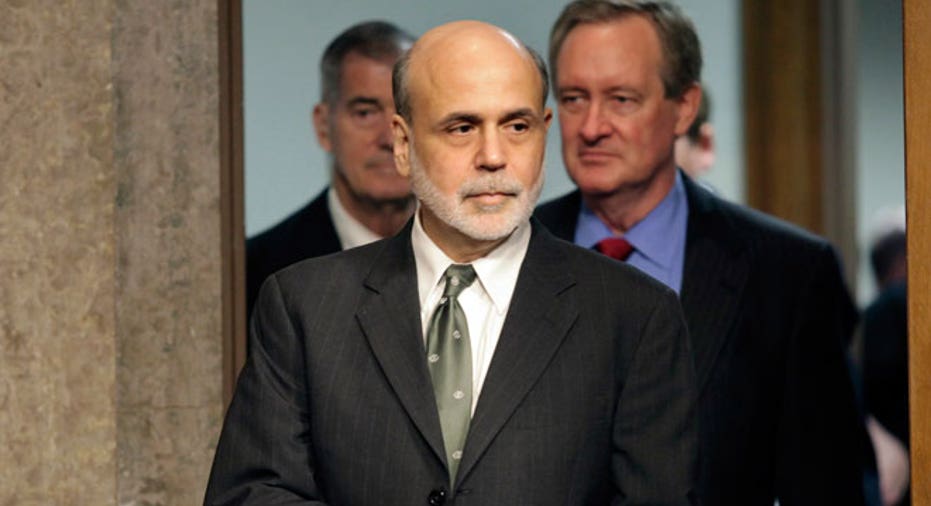New Fed Chief Could Face Rougher Road Than Bernanke

With Federal Reserve policy garnering so much attention of late and speculation surrounding a successor for Chairman Ben Bernanke adding to all the Fed intrigue, it begs the question: Will Bernanke’s successor have an even tougher job than Bernanke?
It seems inconceivable that the job will be more difficult given Bernanke’s central role in guiding the U.S. economy (for better or worse) through the worst financial crisis since the Great Depression. But whoever succeeds Bernanke will eventually have to undo Bernanke’s unprecedented interventions in a still very unstable global economy.
While unprecedented and controversial, quantitative easing and four-and-a-half years of historically low interest rates were initiated during times of crisis and have resulted in rock bottom mortgage rates and a roaring stock market. Unwinding those programs could have the opposite effect and thus prove far less palatable.
Bernanke and President Barack Obama have hinted that Bernanke won’t be back for a third term as Fed chief when his second term expires in January. Although a number of names have been bandied about as possible successors – former Treasury Secretary Timothy Geithner, longtime Washington economics guru Lawrence Summers – the smart money believes current Fed Vice Chair Janet Yellen is practically a lock for the nomination.
Yellen has been one of Bernanke’s closest policy allies since the U.S. housing bubble burst in 2007, leading to a global credit crisis that threatened the stability of the world’s economy. Since then the central bank has lowered the key federal funds rate to an historically low range of 0-0.25%, initiated three rounds of massive bond-buying purchases known as quantitative easing, while nearly tripling the Fed’s balance sheet to an unprecedented $3.4 trillion.
For months global markets have been hanging on every word uttered by the Fed, looking for some sign as to when and how the Fed might begin to tighten fiscal policy, first by scaling back its current $85 billion a month bond buying program and later by raising the fed funds rate.
Improved communication and wider transparency has been a key component of the Bernanke regime. Specifically, in recent months Bernanke and his Fed colleagues have tried to clarify their message on tightening monetary policy, attempting to make it clear that no changes will occur until economic data justifies it.
Roberto Perli, a former Fed official and now a partner at Cornerstone Macro LP in Washington, believes a key challenge for new Fed chair will be maintaining – or even improving – the channels of communication between the Fed and market participants.
“Potentially, the choice of the next Fed chair could inject uncertainty as to the course of U.S. monetary policy at a time (like now) when current policy is conducted mostly through communication of future intentions. If future policy could change depending on the next chairman, the effectiveness of Fed communication, and therefore of Fed policy, may be compromised,” Perli said in a recent note to clients.
In any event, Perli said Bernanke’s more inclusive approach to administering Fed policy, a departure from recent Fed chiefs, will make it harder for Bernanke’s successor to redirect Fed strategy in his or her preferred direction.
'Herding Cats'
More than a few analysts believe the new Fed chief won’t be pressured into altering current Fed policy any time soon, which would make their job a lot easier.
Bernanke said during a press conference last week that the Fed could begin tapering its bond purchases later this year with the program shutting down by mid-2014. But only if the economic data continues to strengthen. The Fed has vowed to keep interest rates low until the U.S. unemployment rate hits 6.5%.
If it turns out that the economic data over the course of the next six months to a year proves less robust than the Fed’s somewhat rosy projections the Fed will more than likely stand pat, maintaining the stimulus programs so beloved by securities markets.
Axel Merk, president of Merk Investments, said he’s skeptical the U.S. economy will be strong enough any time soon for the Fed to start winding down its bond purchases.
“I would not make it a foregone conclusion that we’re going to have an exit,” Merk said.
Yellen, a so-called policy dove who favors a loose monetary strategy in an effort to stimulate economic activity, would likely be comfortable keeping the Fed’s $85 billion a month bond purchasing program in place and leaving interest rates at record lows indefinitely.
Merk said Yellen’s principal challenge might be keeping in line the disparate members of the Federal Open Markets Committee, which sets most fiscal policy. Doing so is akin to “herding cats,” he said.
Indeed, as the economic recovery has dragged on, some FOMC members, notably Dallas Fed President Richard Fisher, have become increasingly vocal in their dissent from the Fed’s long-standing easy money policies.
Merk said reining in these dissenters could be even more difficult next year if more policy hawks join the ranks of voting FOMC members. With or without tapering, Bernanke’s “successor is going to have a tough time,” Merk concluded.



















